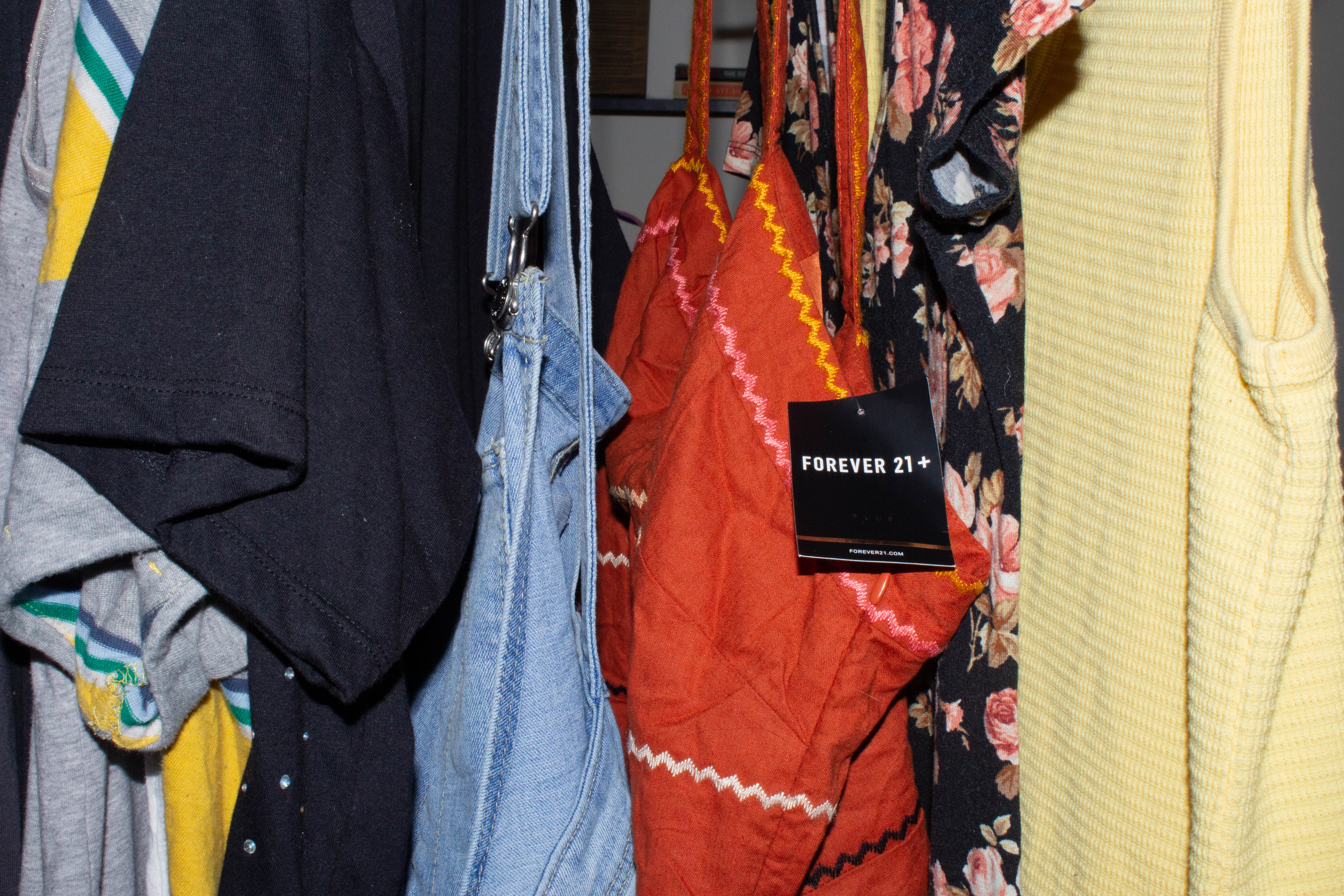Students largely express themselves through the clothes that they wear — however, regularly buying fast fashion has many unintended consequences. By abandoning this in favor of renewable and more affordable second-hand shopping habits, college students have the power to positively impact clothing manufacturing across the globe.
Fast fashion is defined as “an approach to the design, creation and marketing of clothing fashions that emphasizes making fashion trends quickly and cheaply available to consumers,” according to Merriam Webster.
According to an article by Statista, the United States has the largest fashion industry in the world — in 2016 alone, store-based retailing was approximately valued at $292 billion.
With how much money this industry makes, these companies should start to treat their workers better and decrease their carbon footprints, especially considering that the fashion industry is the second-largest polluter in the world, second only to oil, according to Sustain your Style.
Shopping at stores with questionable labor policies and detrimental environmental effects is an ethical issue with an easy solution.
According to SmartAsset, Americans dump 10.5 million tons of clothing in landfills every year. Additionally, the fast fashion industry is responsible for an increased amount of plastic released into the environment because of the pervasive use of polyester in fast fashion, according to an article by The Independent.
Corporate cotton farming is incredibly dangerous and detrimental to both the environment and farmers because of the high amount of water and pesticides it requires, according to The Independent.
Fortunately, college students have the ability to research how ethical their favorite brands are. Consider the website Good On You, a resource that rates clothing brands based on their environmental impact, labor treatment and animal treatment.
Many fast fashion brands, such as Forever 21 and Urban Outfitters, received low ratings in all categories. Both brands have questionable conditions for their factory workers or failed to report on large portions of their supply chains, according to Good on You.
“It is terribly inhumane to have such low labor payouts when consumers pay a high price,” junior English education major Jess Holm said.
The easiest solution as a consumer is to seek secondhand clothing instead of trendy retail. Buying thrift clothing enables people to stock their wardrobe with unique pieces, and therefore better cultivate an individual sense of style.
Also, even if one is not trying to find any “high fashion” pieces at a thrift store or consignment shop, basic staple items are often readily available for very affordable prices.
“Reusing the clothes we already have and buying from thrift stores reduces waste and prevents contributing to the companies that underpay and overwork their employees,” sophomore environmental science major Mackenzie Jordan said.
With at least 20 second-hand stores available in the Kennesaw area alone, these stores are not a scarce resource. Local thrift stores, such as Goodwill, Ecologie, Plato’s Closet and Park Avenue, offer prices either similar or lower than those of new clothing from fast fashion companies. This makies it a more affordable, more sustainable and more humane alternative to other fast-fashion options.
By purchasing clothing secondhand, college students can make a serious impact on the environment and society. Not choosing to buy clothing from fast fashion brands prevents consumers from creating an unethical, environmental impact or being involved in a questionable chain of supply.




